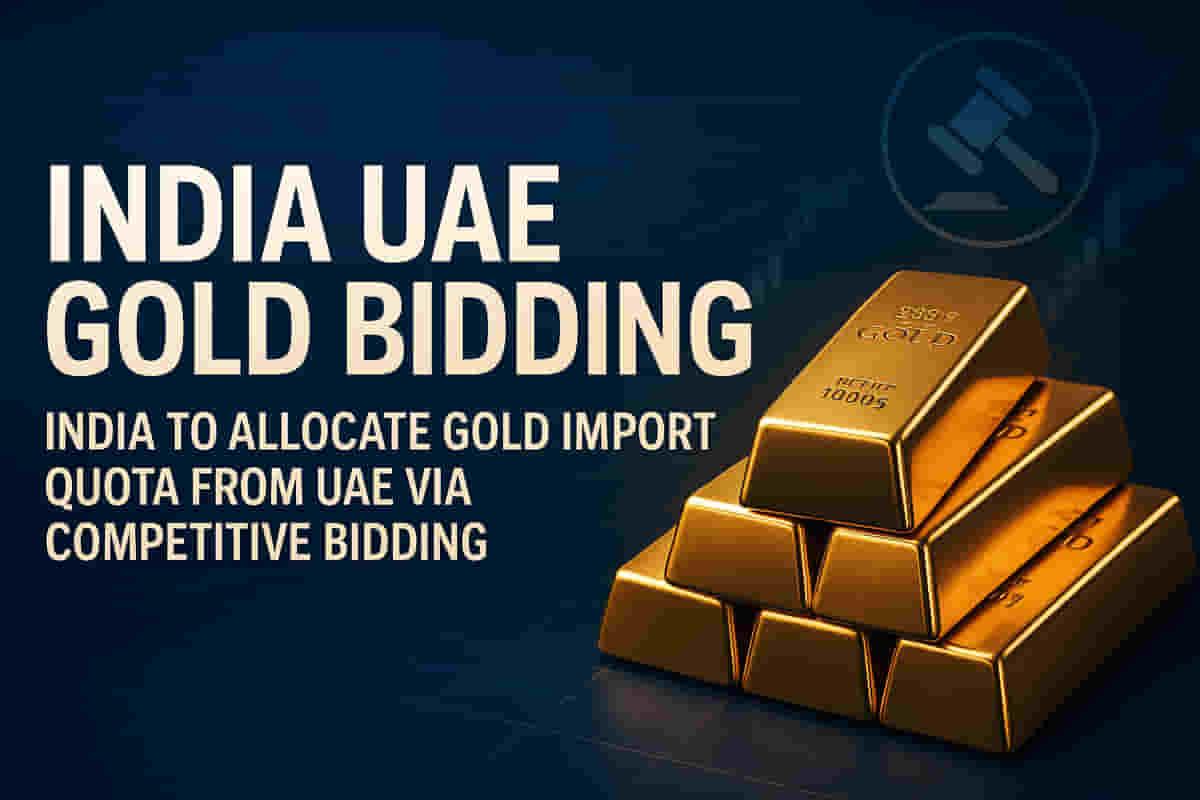India to Allocate Gold Import Quota from UAE Via Competitive Bidding
Commodities
|
29th October 2025, 8:06 PM

▶
Short Description :
Detailed Coverage :
Heading: India to Use Competitive Bidding for UAE Gold Imports
The Indian government, through the Directorate General of Foreign Trade (DGFT), has announced a significant change in how it allocates the tariff rate quota (TRQ) for gold imported from the United Arab Emirates (UAE) under their Comprehensive Economic Partnership Agreement (CEPA). This amendment introduces a competitive bidding process for allocating the quota.
Under the India-UAE CEPA, India allows an annual import of up to 200 metric tonnes of gold from the UAE with a one percent duty concession. The TRQ mechanism allows this specific quantity to enter India at a reduced tariff. Now, the DGFT has stated that the allocation of this quota will be conducted through a competitive bidding or online tender process.
To be eligible for participation, applicants must be registered with the Bureau of Indian Standards (BIS) for gold hallmarking and have a valid Goods and Services Tax (GST) registration. A crucial exclusion is that imports of Gold Dore, which is unrefined gold, will not be accepted under this TRQ. The DGFT will annually announce the application timelines and the specific modalities for the online bidding process. This move aims to ensure greater transparency and effective management of the gold TRQ allocations.
Impact This shift to competitive bidding is expected to introduce more transparency into the gold import process. It could potentially lead to more efficient price discovery for the TRQ. For eligible importers, it means that securing the quota will depend on their bidding strategy, potentially impacting their cost of acquisition. The requirement for BIS and GST registration ensures compliance and quality standards. Overall, it aims to streamline the process and prevent potential misuse, benefiting the broader Indian gold market by ensuring orderly imports. Rating: 6
Terms * Tariff Rate Quota (TRQ): A trade policy tool that allows a specific quantity of a good to be imported at a lower tariff rate, while imports exceeding this quota face higher tariffs. * Comprehensive Economic Partnership Agreement (CEPA): A type of free trade agreement that goes beyond tariff reductions to include areas like services, investment, intellectual property, and cooperation. * Bureau of Indian Standards (BIS) Hallmarking: A certification mark stamped on gold jewellery and articles by the BIS to certify its purity and fineness, assuring consumers of the gold's quality. * Goods and Services Tax (GST): An indirect tax levied on the supply of goods and services in India, replacing most indirect taxes. * Gold Dore: Unrefined gold, typically in the form of bars or nuggets, which requires further refining before it can be used in jewellery or other applications.